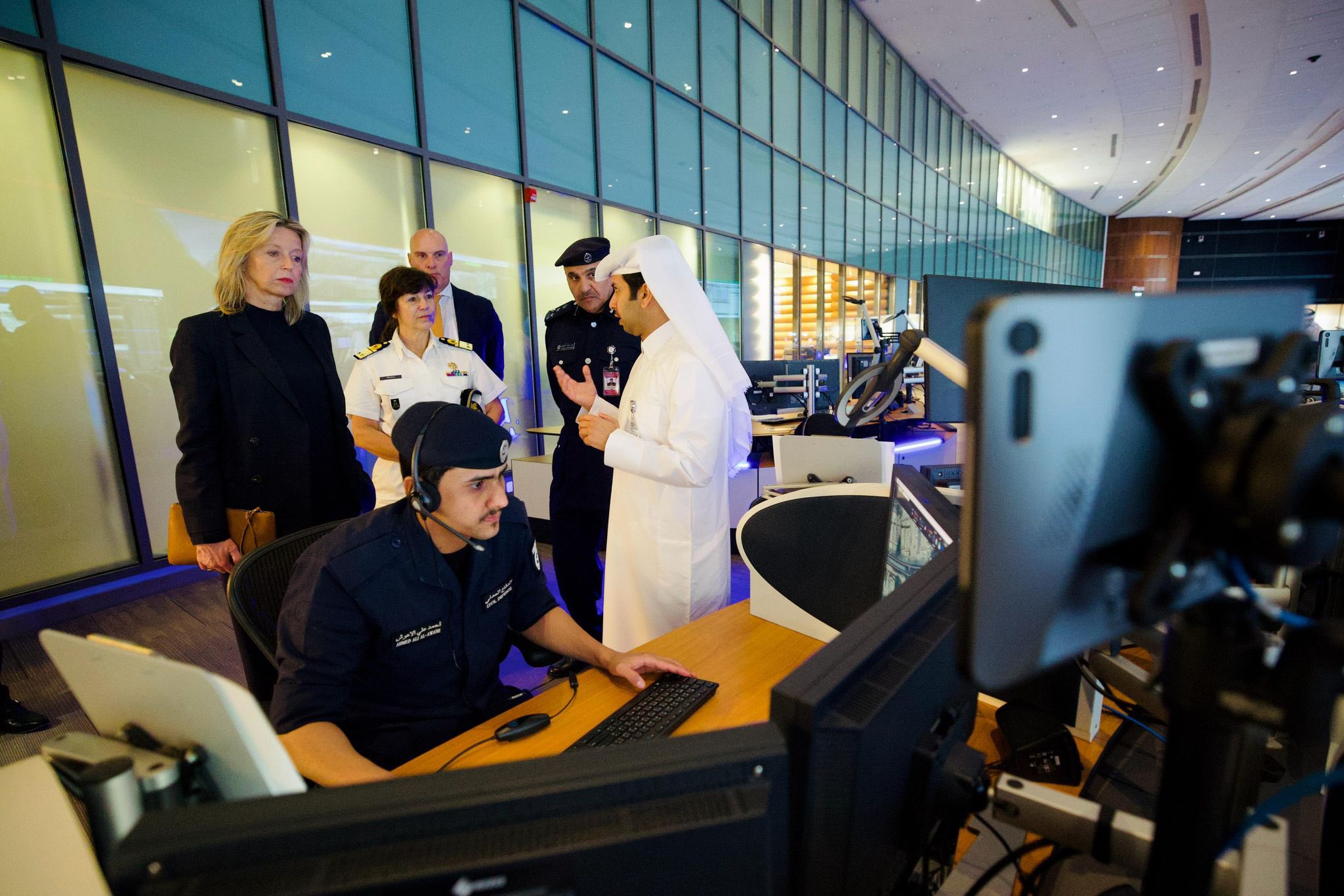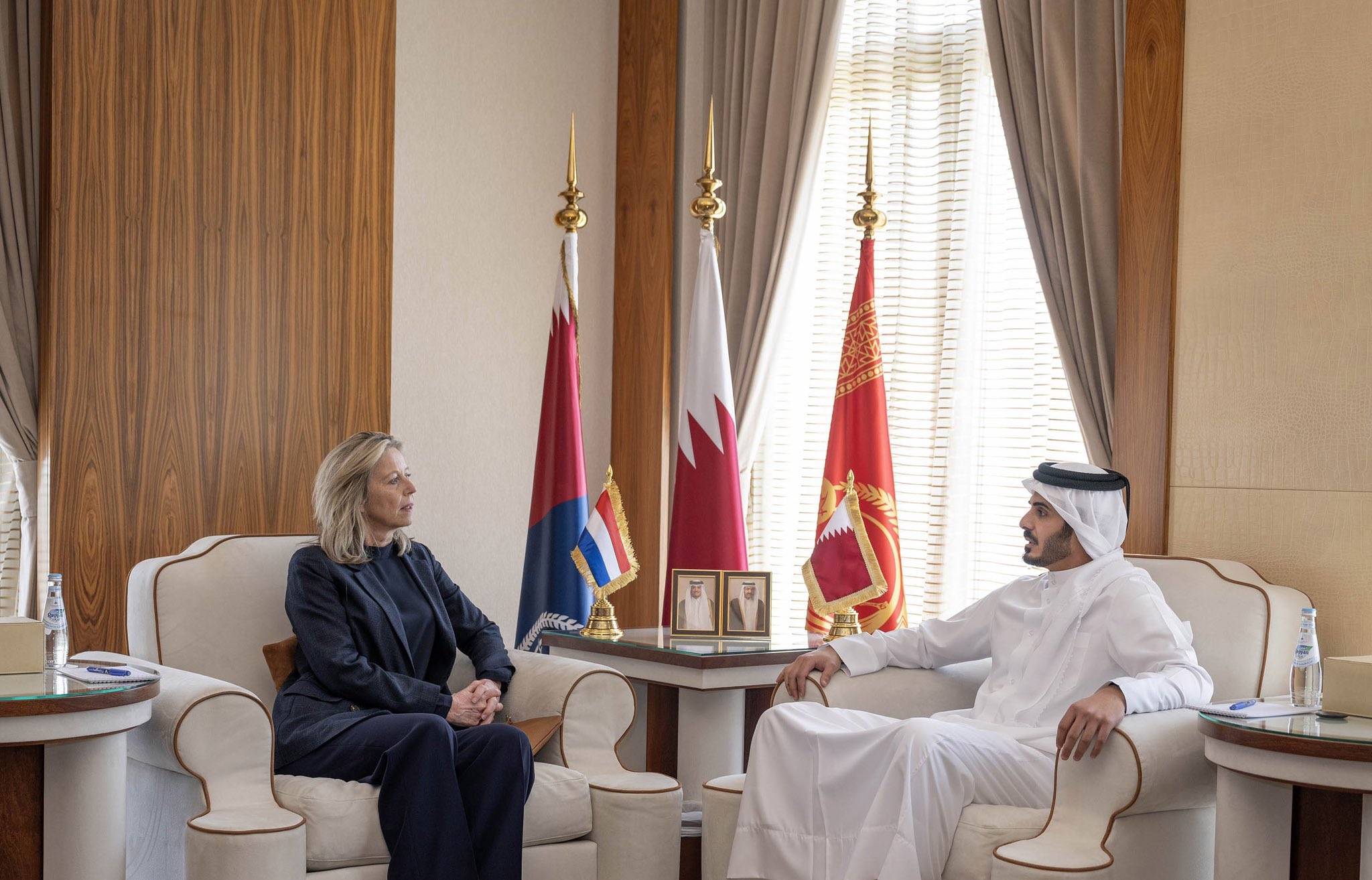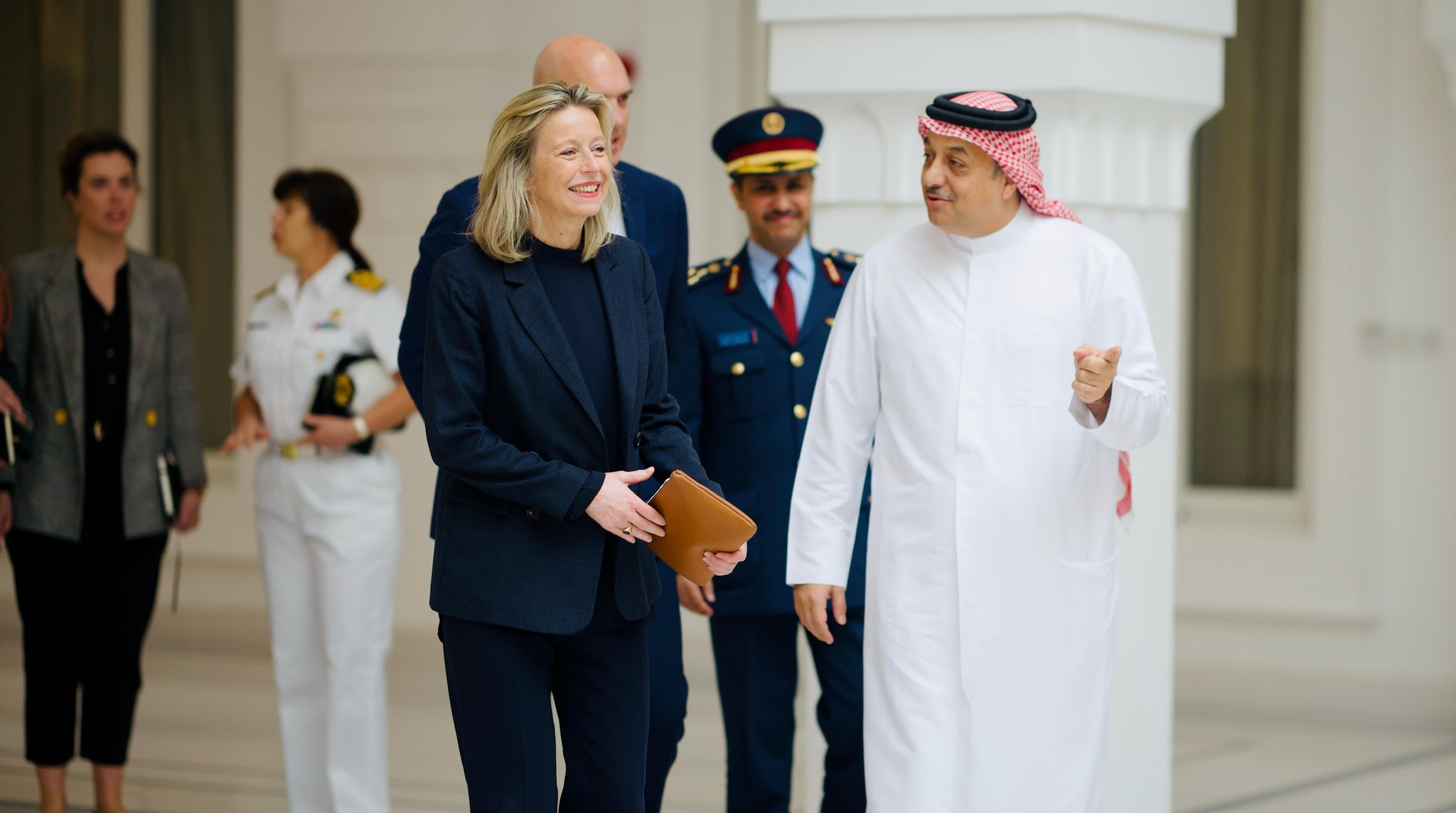The Dutch defence minister engages in discussions with Qatari officials to enhance bilateral security cooperation, highlighting Qatar’s mediation role in conflict resolution.
The Dutch Defence Minister Kajsa Ollongren has met with Qatari officials to discuss matters of mutual interest during her visit to Doha on Monday.
Ollongren led a delegation of Dutch officials and met Qatar’s Deputy Prime Minister and Minister of State for Defence Affairs Khalid bin Mohammed Al Attiyah to discuss security in the region.
As part of her visit, she also toured the Combined Air Operations Center at Qatar’s Al Udeid Air Base, where she met and spoke with Dutch staff officers.

In a post via X, the Dutch Defence Minister remarked that “Qatar plays a crucial mediating role.” The Netherlands is therefore keen to review and further develop the bilateral corporation in the security fields.
Ollongren also had a meeting with Sheikh Khalifa bin Hamad Al Thani, the Qatari Minister of Interior and Commander of the Internal Security Force (Lekhwiya).

During their meeting, the two officials also explored ways to enhance bilateral security cooperation between their nations.
Qatari participation in the 105th OPCW session at The Hague
Prior to Ollongren’s visit to Qatar, the Gulf state actively participated in the 105th session of the Executive Council of the Organisation for the Prohibition of Chemical Weapons (OPCW), held in The Hague from March 5 to 8.
The Qatari delegation to the OPCW session was led by the Qatari Ambassador to the Netherlands and national representative to the OPCW, Mutlaq bin Majed Al Qahtani.
During Ambassador Al Qahtani’s address to the Executive Council, he stressed that Qatar strongly condemns the use of chemical weaponry by state and non-state actors. He added that Qatar is committed to supporting the OPCW’s efforts to eradicate the threat of chemical attacks.
He also reminded the council of the atrocities being committed in Gaza and the violent occupier’s use of prohibited weapons against the enclave’s innocent.
In November, London-based reconstructive plastic surgeon, Dr Ghassan Abu-Sittah drew the world’s attention to Israel’s egregious deployment of white phosphorus as a brutal tactic of war.
During a press conference, the tenacious medic recounted his service to Gaza’s wounded from October 9 to November 19 and revealed that “We started seeing phosphorus burns. I had treated white phosphorus burns in the Gaza Strip during the 2009 war – it was very familiar with the very characteristic injuries and burns that they make.”
White phosphorus can chemically and thermally burn a person down to the bone upon contact. Upon entry into the bloodstream, it can also result in organ failure. According to Human Rights Watch, its use in densely populated areas can amount to a war crime, given its indiscriminate nature.
On October 12, HRW released a report saying they had seen verified videos, “showing multiple airbursts of artillery-fired white phosphorus over the Gaza City port and two rural locations along the Israel-Lebanon border.”







